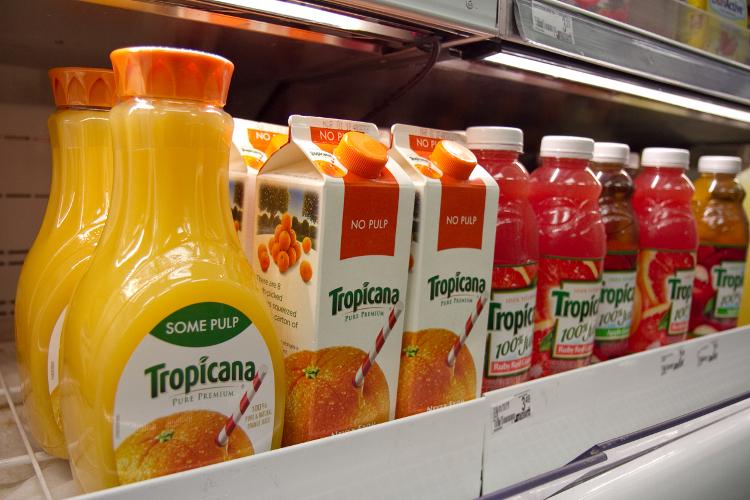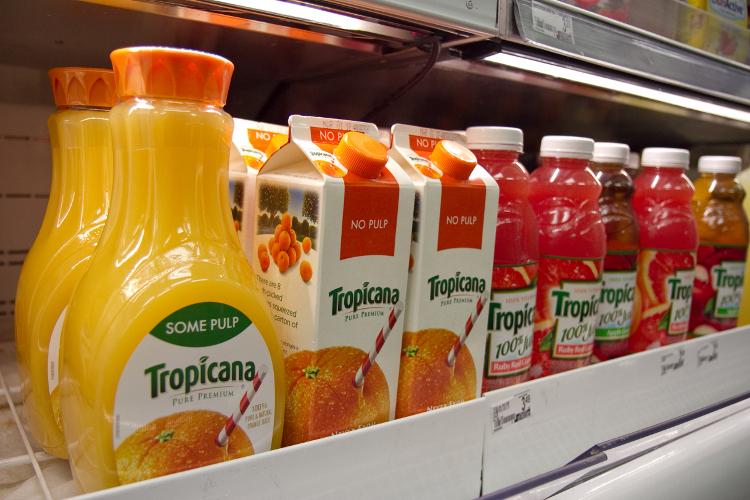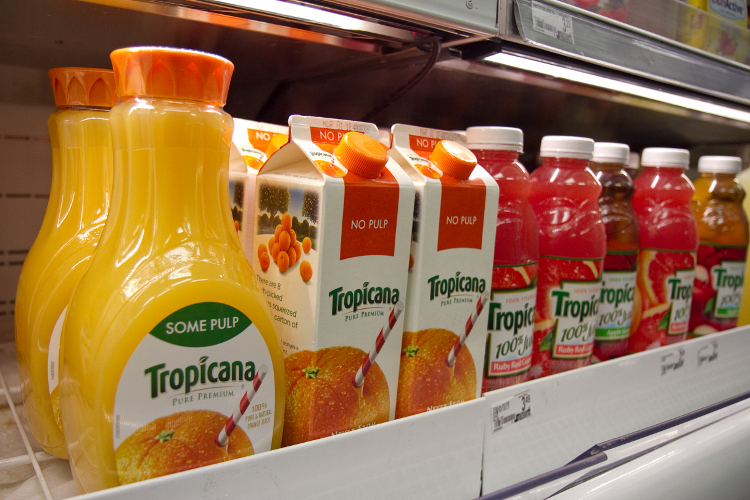NEW YORK—PepsiCo Inc. announced that it would resume using 100 percent Florida orange juice in its Tropicana Pure Premium brand of orange juice after the U.S. Food and Drug Administration (FDA) found small amounts of carbendazim, a fungicide, in Brazilian orange juice shipments to the United States.
Tropicana Pure Premium sourced its oranges from Florida originally until crop problems arose in 2007, forcing the PepsiCo-owned brand to import shipments from Brazil.
Outside the United States, farmers apply carbendazim to prevent blossom blight and black spot, a strain of mold specific to orange trees. In the Unites States, carbendazim is usually applied to nonperishable items such as paints, textiles, and ornamental trees, but it has been banned from U.S. citrus fruit since 2009. Yet the FDA confirmed that negligible quantities of carbendazim in foods such as grains, nuts, and some noncitrus fruits pose no significant threat.
To publicize its move to using all Florida oranges in its juice, PepsiCo plans to launch a new campaign focusing on utilizing only Florida juice,
The FDA gave passing grades to orange juice imports from Belize, Canada, Costa Rica, Honduras, and Mexico after testing juice samples for the fungicide carbendazim, but it has not yet permitted resumption of juice imports from Brazil, one of the world’s leading orange growers, which accounts for almost half of all U.S. orange juice imports and over 10 percent of the total orange juice consumed by Americans.
The risk of a Brazilian juice embargo spiked orange juice futures last week to record highs after the FDA reported that a company, later said to be The Coca-Cola Co., had reported finding carbendazim in samples of juice from Brazil. Coca-Cola owns Minute Maid, whose products may also contain a mix of orange juice from the United States and Brazil.
Orange juice from Brazil is expected to test positive for carbendazim since it is used by growers there to combat mold on orange trees. If Brazilian orange juice is contaminated, companies will have a challenge finding sufficient alternate suppliers since Brazil produces almost two-thirds of the world’s juice.
The Purchase, N.Y.-based PepsiCo is one of the world’s largest food, beverage, and consumer products companies. It also makes Pepsi soft drinks, Frito Lay snacks, Gatorade sports drinks, and Quaker oats.




